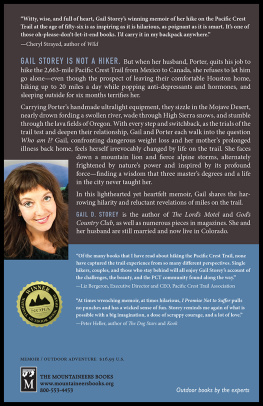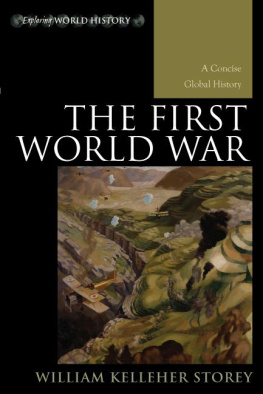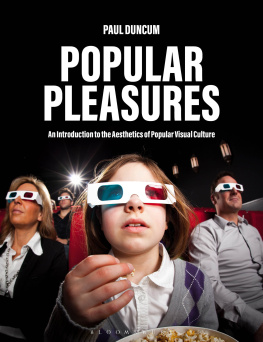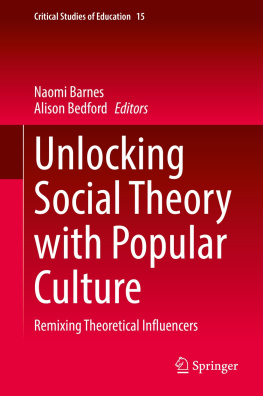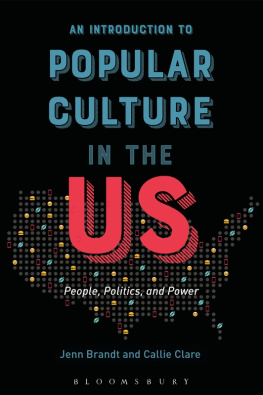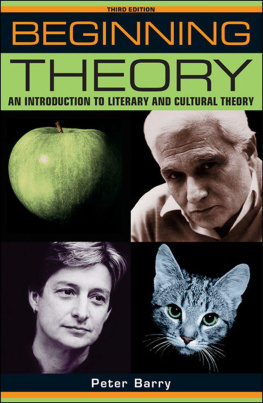Storey - Cultural Theory and Popular Culture: An Introduction
Here you can read online Storey - Cultural Theory and Popular Culture: An Introduction full text of the book (entire story) in english for free. Download pdf and epub, get meaning, cover and reviews about this ebook. year: 2021, publisher: Taylor and Francis, genre: Politics. Description of the work, (preface) as well as reviews are available. Best literature library LitArk.com created for fans of good reading and offers a wide selection of genres:
Romance novel
Science fiction
Adventure
Detective
Science
History
Home and family
Prose
Art
Politics
Computer
Non-fiction
Religion
Business
Children
Humor
Choose a favorite category and find really read worthwhile books. Enjoy immersion in the world of imagination, feel the emotions of the characters or learn something new for yourself, make an fascinating discovery.

Cultural Theory and Popular Culture: An Introduction: summary, description and annotation
We offer to read an annotation, description, summary or preface (depends on what the author of the book "Cultural Theory and Popular Culture: An Introduction" wrote himself). If you haven't found the necessary information about the book — write in the comments, we will try to find it.
Storey: author's other books
Who wrote Cultural Theory and Popular Culture: An Introduction? Find out the surname, the name of the author of the book and a list of all author's works by series.
Cultural Theory and Popular Culture: An Introduction — read online for free the complete book (whole text) full work
Below is the text of the book, divided by pages. System saving the place of the last page read, allows you to conveniently read the book "Cultural Theory and Popular Culture: An Introduction" online for free, without having to search again every time where you left off. Put a bookmark, and you can go to the page where you finished reading at any time.
Font size:
Interval:
Bookmark:
The companion website for this new edition features:
Extension activities for each chapter
Additional questions for discussion
Interactive quizzes covering the topics discussed within each chapter
Annotated links to relevant websites and further reading
A complete glossary of key terms.
Please visit the website at www.routledge.com/cw/storey to access these additional resources.
In this ninth edition of his award-winning introduction, John Storey presents a clear and critical survey of competing theories of and various approaches to popular culture. Its breadth and theoretical unity, exemplified through popular culture, means that it can be flexibly and relevantly applied across a number of disciplines.
Retaining the accessible approach of previous editions and using appropriate examples from the texts and practices of popular culture, this new edition remains a key introduction to the area.
New to this edition:
updated throughout with contemporary examples of popular culture
revised and expanded sections on Richard Hoggart and Utopian Marxism
brand new discussions on Black Lives Matter and Intersectionality
updated student resources at www.routledge.com/cw/storey
This new edition remains essential reading for undergraduate and postgraduate students of cultural studies, media studies, communication studies, the sociology of culture, popular culture and other related subjects.
John Storey is Emeritus Professor of Cultural Studies at the Centre for Research in Media and Cultural Studies at the University of Sunderland, UK, and Chair Professor of the Changjiang Scholar Programme at the Comparative Cultural Studies Centre, Shaanxi Normal University, China. He has published widely in cultural studies, including twenty-six books. The most recent is Radical Utopianism and Cultural Studies (2019).
An Introduction
Ninth Edition
John Storey

Ninth edition published 2021
by Routledge
2 Park Square, Milton Park, Abingdon, Oxon, OX14 4RN
and by Routledge
52 Vanderbilt Avenue, New York, NY 10017
Routledge is an imprint of the Taylor & Francis Group, an informa business
2021 John Storey
The right of John Storey to be identified as author of this work has been asserted by him in accordance with sections 77 and 78 of the Copyright, Designs and Patents Act 1988.
All rights reserved. No part of this book may be reprinted or reproduced or utilised in any form or by any electronic, mechanical, or other means, now known or hereafter invented, including photocopying and recording, or in any information storage or retrieval system, without permission in writing from the publishers.
Trademark notice : Product or corporate names may be trademarks or registered trademarks, and are used only for identification and explanation without intent to infringe.
First edition published by Pearson Education Limited 1997
Eighth edition published by Routledge 2018
British Library Cataloguing-in-Publication Data
A catalogue record for this book is available from the British Library
Library of Congress Cataloging-in-Publication Data
Names: Storey, John, author.
Title: Cultural theory and popular culture : an introduction / John Storey.
Description: Ninth Edition. | New York : Routledge, 2021. | Revised edition of the authors Cultural theory and popular culture, 2018. | Includes bibliographical references and index.
Identifiers: LCCN 2020032284 (print) | LCCN 2020032285 (ebook) | ISBN 9780367820626 (hardback) | ISBN 9780367820602 (paperback) | ISBN 9781003011729 (ebook)
Subjects: LCSH: Popular culturePhilosophy. | CulturePhilosophy. | CultureHistory.
Classification: LCC CB19. S743 2021 (print) | LCC CB19 (ebook) | DDC 901dc23
LC record available at https://lccn.loc.gov/2020032284
LC ebook record available at https://lccn.loc.gov/2020032285
ISBN: 978-0-367-82062-6 (hbk)
ISBN: 978-0-367-82060-2 (pbk)
ISBN: 978-1-003-01172-9 (ebk)
Typeset in Giovanni Std
by KnowledgeWorks Global Ltd.
Visit the companion website: www.routledge.com/cw/storey
For Charlie and Jenny
Cultural Theory and Popular Culture is an introduction in that it tries to be accessible in terms of subject matter, but it is also an introduction in the sense that it introduces something new. That is to say, although all the work discussed here has a previous existence, it is not a body of work that previously existed as a tradition of cultural theory and popular culture. The originality of this book is to bring this work together as a way of understanding popular culture and the discourses around popular culture.
In preparing the ninth edition I have revised, rewritten, edited, added and updated throughout. The most obvious additions are new sections on Utopian Marxism ( on postmodernism, removing the sections on pop music, television and convergence culture.
Popular culture, and the study of popular culture, has a history and a tradition, and it is important that students do not think that contemporary and popular culture are interchangeable terms. History is a very important part of the field. I am sometimes asked why I do not update some of the theories and methodologies discussed in this book. The reason is twofold and very simple. First, one cannot draw a historical map using only the most recent examples of the encounter between cultural theory and popular culture. Second, what I discuss here are the classics of the field; their critical focus may be on popular culture that is no longer popular, but in terms of theory and method they provide ways of working that are foundational to the field while still supplying the reader with some invaluable tools when trying to understand more recent examples of popular culture. Put simply, they remain, and will continue to remain for the foreseeable future, a key part of the historical, theoretical and methodological literacy needed when thinking critically about popular culture, especially from the critical perspective of cultural studies.
The ninth edition is best read in conjunction with its companion volume, Cultural Theory and Popular Culture: A Reader , fifth edition (Routledge, 2019).
In writing the eighth edition I have revised, rewritten, edited and added throughout. The most obvious addition is a new chapter called Class and class struggle. Altogether, the size of the book has increased by more than 6,500 words.
The eighth edition is best read in conjunction with its companion volume, Cultural Theory and Popular Culture: A Reader , fifth edition (Routledge, 2019).
In writing the seventh edition I have revised, rewritten and edited throughout. I have also added new material to most of the chapters. The most obvious additions are a new section on the contextuality of meaning at the end of and a new chapter called The materiality of popular culture. Altogether I have added more than 8,500 words.
The seventh edition is best read in conjunction with its companion volume, Cultural Theory and Popular Culture : A Reader
Font size:
Interval:
Bookmark:
Similar books «Cultural Theory and Popular Culture: An Introduction»
Look at similar books to Cultural Theory and Popular Culture: An Introduction. We have selected literature similar in name and meaning in the hope of providing readers with more options to find new, interesting, not yet read works.
Discussion, reviews of the book Cultural Theory and Popular Culture: An Introduction and just readers' own opinions. Leave your comments, write what you think about the work, its meaning or the main characters. Specify what exactly you liked and what you didn't like, and why you think so.


